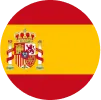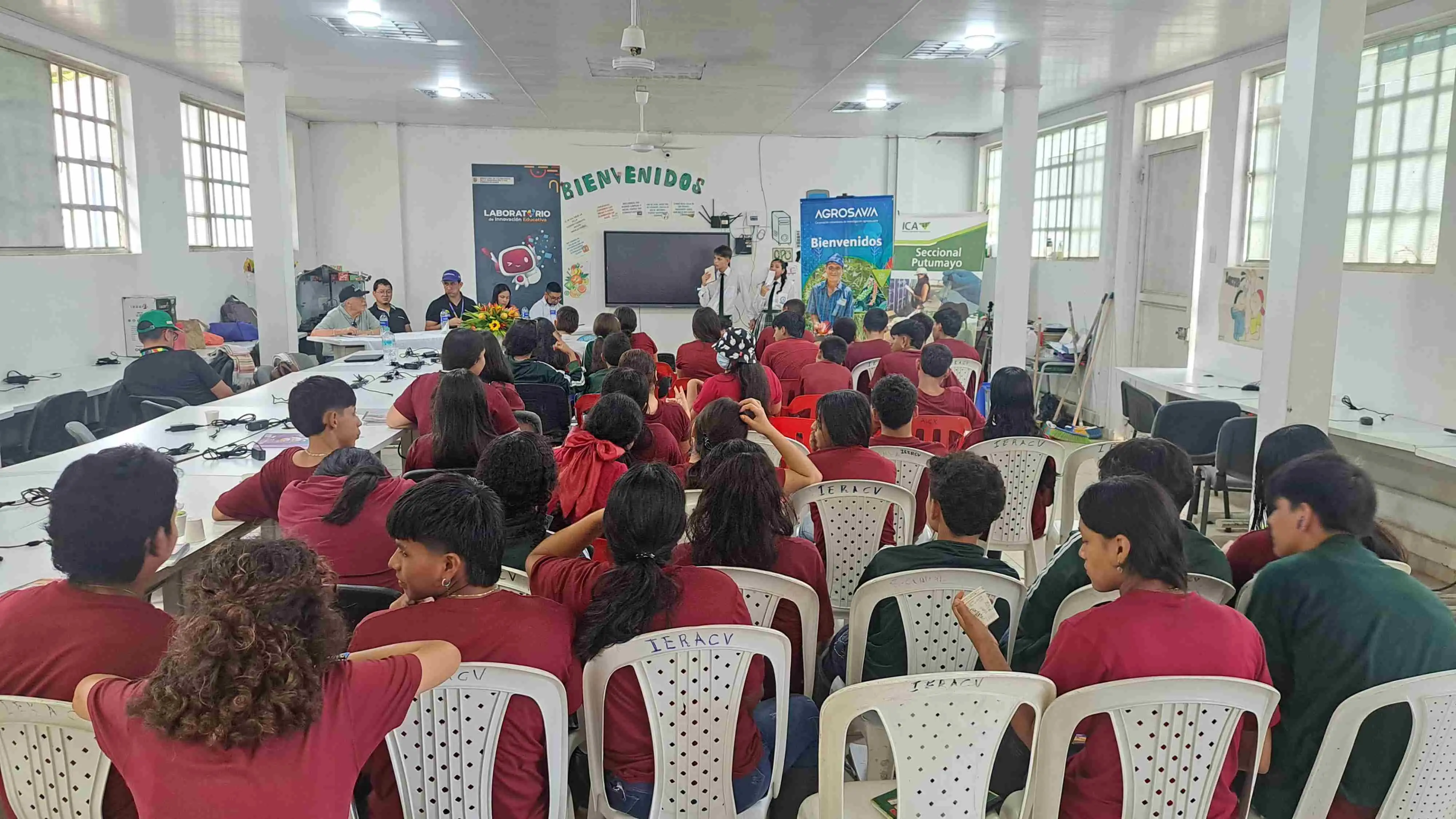- These events plant the seeds of hope in young people, inviting them to become the architects of a prosperous and sustainable future in the countryside.
Florencia, Caquetá. June 16, 2025. Globalization has revolutionized markets, proposing an unavoidable challenge: to produce food that meets international standards in an increasingly competitive environment. Within this context, beef and dairy production has become a critical pillar of development. Aware of this reality, the Colombian Agricultural Research Corporation – AGROSAVIA, and the Ministry of Agriculture and Rural Development, have joined forces under the umbrella of the National Rural Youth Strategy. Together, they are intensifying efforts to empower the new generations in the Putumayo region. Through training programs and the dissemination of innovative technologies, the aim is not only to enhance the competitiveness and productivity of the regional livestock sector but also to plant the seeds of a prosperous and sustainable future.
It is important to consider, within Colombia’s sustainable development framework, the Sustainable Bovine Livestock Policy (Ganadería Bovina Sostenible, GBS 2020–2050) has been launched. This policy seeks to establish the foundations for livestock to become a pillar in proper landscape management, continuous improvement of quality, productivity, profitability, and multidimensional well-being. It also aims to strengthen the competitiveness of the value chain, contribute to climate change adaptation and mitigation, and support the country’s carbon neutrality goals through the reduction of Greenhouse Gas Emissions (GHG’s).
Aware of the importance of sustainability, educational spaces and training programs have been created to invite students to immerse themselves in this new philosophy. This opens the door to responsible livestock farming that reduces its ecological footprint and becomes an ally of the environment.
In its initial phase, the Foro de Ganadería Sostenible para el Medio y Bajo Putumayo (Sustainable livestock Forum for Mid and Lower Putumayo) was held, gathering key panelists including Diego Orozco, executive director of COGAMAYO; Fernando Reveló, agricultural science teacher at the Rural Educational Institution (Institución Educativa Rural, IER) from the city of Villagarzón; as well as delegates from the Colombian Agricultural Institute (Instituto Colombiano Agropecuario, ICA) and the Secretariat of Agriculture and Agricultural-Livestock Development of Villagarzón.
The forum began with Professor Reveló, who highlighted the importance of IER from the city of Villagarzón and the crucial role of the Productive Pedagogical Plans in educating rural youth. He emphasized how livestock has become a core pillar for the institution and its positive impact on the community.
The spotlight of the event was on the 10th-grade students —Stick Ordóñez, Alejandra Viteri, and Juan Miguel Andrade— who, with the support of the research group based in Florencia and Costayaco (Putumayo), not only moderated the forum but also served as masters of ceremonies. Their leadership and commitment are a clear reflection of youth potential to drive rural development. In a rural environment that longs for renewal and vitality, these young people are forging the skills needed to transform livestock production and revitalize their communities.
Diego Orozco then offered a historical perspective on livestock in Putumayo. He recounted how, in the early 1900s, Jesuit monks introduced the first cattle through hand-build trails in the municipality of Puerto Asís. He presented revealing statistics showing that over the past two decades, livestock has become the main legal economic activity in the rural sector, with more than 8,000 families in Putumayo dedicated to it. Orozco also discussed the opportunities and challenges that livestock faces in the Amazon context, encouraging young people to envision a future in the sector, not just as livestock farmers, but as entrepreneurs and extension agents.
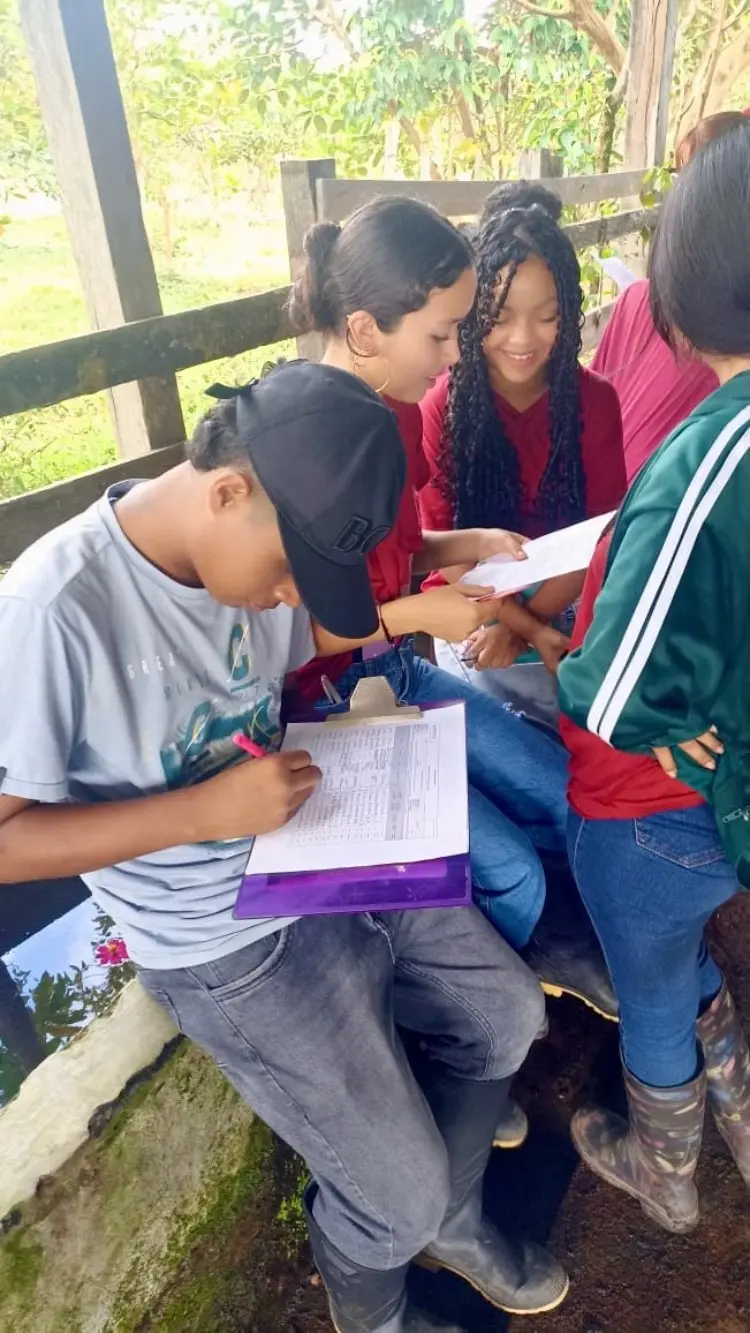
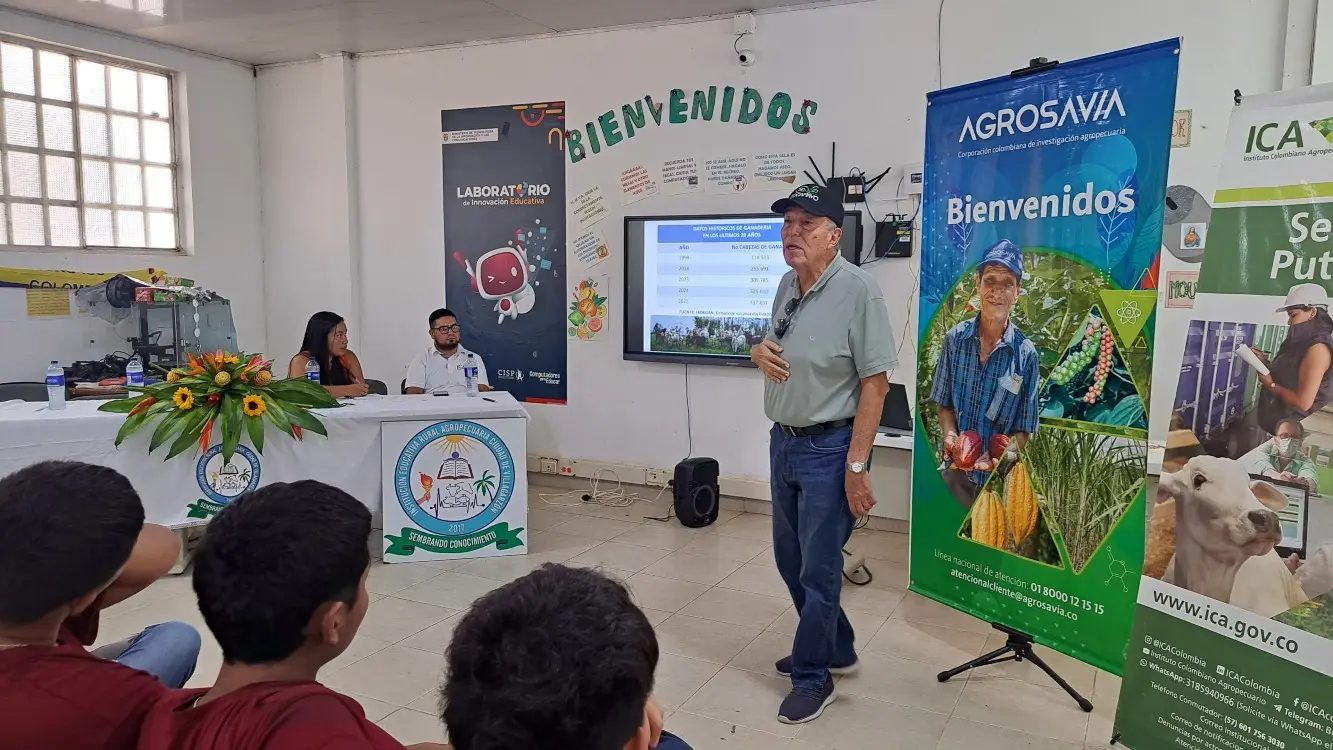
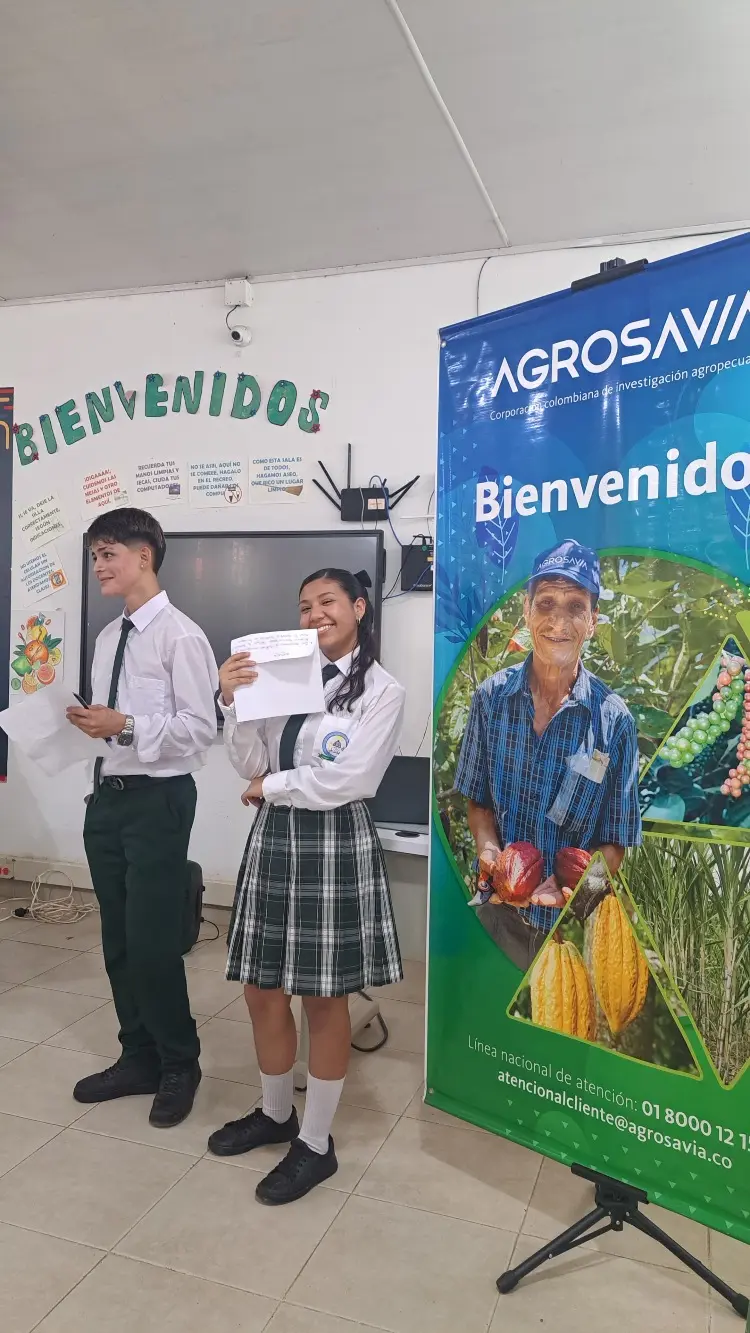
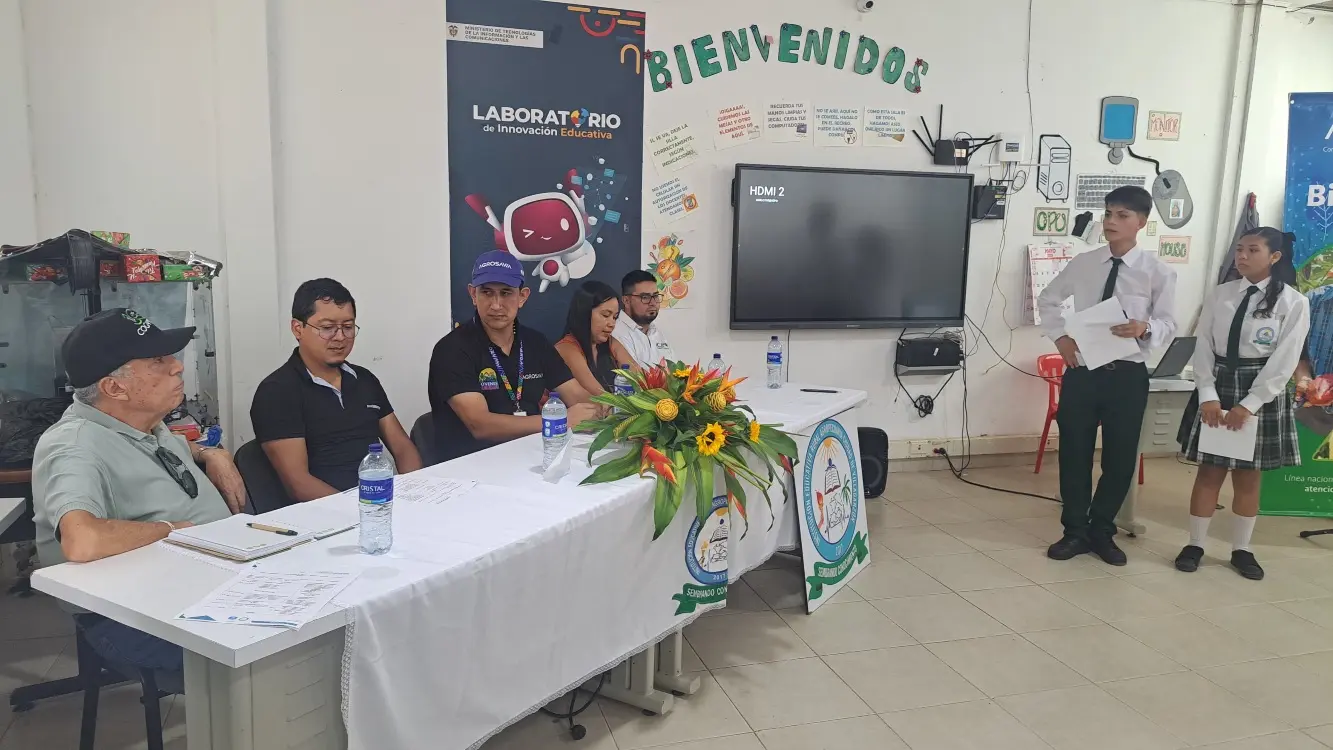
For his part, the ICA representative explained the regulatory framework of Good Livestock Farming Practices (Buenas Prácticas Ganederas, BPG), emphasizing how their implementation can be key to achieving sustainability on Putumayo’s livestock farms.
This event not only shed light on the past and present of livestock in the region but also planted a seed of hope in the youth, inviting them to become the architects of a prosperous and sustainable rural future turning it into a real opportunity to build their life projects.
In a second phase, an innovative workshop on Good Livestock Farming Practices was held, bringing together 10th- and 11th-grade students from IER from the city of Villagarzón. This initiative was designed as a territorial strategy to foster knowledge exchange and strengthen the Productive Pedagogical Project in Livestock. During the event, students engaged in a critical reading exercise that contrasted proper and improper practices in livestock production.
Through this dynamic, students not only acquired essential knowledge on animal welfare and biosecurity but also learned about the responsible use of veterinary medicines and proper animal nutrition. The importance of production record keeping and its practical applications was also emphasized. Participants reflected on environmental care, especially regarding the sustainable management of cattle manure. This workshop not only enriched their academic training but also empowered them to become change agents in their communities.
To make the learning process more dynamic, a role-playing activity was implemented, in which students assumed different characters and developed creative solutions to the problems raised during the workshop. This approach allowed them to explore how to transform inadequate livestock practices from within their education, fostering a sense of responsibility and commitment toward a more sustainable future in livestock farming.
This workshop not only equipped young people with valuable knowledge but also inspired them to become agents of change in their communities’ promoting practices that benefit animals, the environment, and workers on livestock farms.
Adopting Good Livestock Farming Practices goes beyond meeting an obligation; it is a unique opportunity to radically transform the sector. This change not only responds to international demands for quality and safety but also embraces sustainability minimizing environmental impact and ensuring fair conditions for all workers. Administrative criteria will be implemented to promote the intelligent and efficient use of physical, economic, and human resources, paving the way toward a more responsible and prosperous future.
In this way, AGROSAVIA empowers the new rural generations by offering a practical and relevant approach that not only enhances education but also contributes to the sustainable development of communities´. Encouraging collaboration between educational institutions, universities, and communities´ is key to maximizing these benefits moving toward a more sustainable and competitive future for Colombian livestock farming.
- More information here:
- José Dario Ule Rodriguez
- Communications, Identity and Corporate Relations Professional
- Office Florencia
- Communications, Identity and Corporate Relations Advisory Office
- jule@agrosavia.co
- AGROSAVIA

